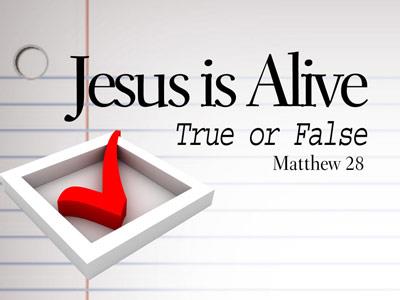-
Counterfeit Christianity Series
Contributed by Frank Lay on Jul 19, 2006 (message contributor)
Summary: John gives us several characteristics of counterfeit Christianity, as well as several characteristics of true Christianity.
WARNING AGAINST COUNTERFEIT CHRISTIANITY
For almost two thousand years of Christianity there have been those who would offer a counterfeit faith as a substitute for the real. In verse 18, John reminds us that the antichrist is coming. According to Nelsons New Illustrated Bible Dictionary (pp 79-80), the antichrist is “a false prophet and evil being who will set himself up against Christ and the people of God in the last days before the second coming. The term refers to one who stands in opposition to all that Jesus Christ represent.” Many see the prefix "anti" and say that it refers to "one who is against Christ." While this may be ultimately true, perhaps the real idea of the word is "substitute." The Antichrist is one who offers himself as a substitute for Christ.
Only John uses the title “Antichrist.” Other Biblical writers use different terms to describe this diabolical person. Daniel refers to the “prince who is to come” in Daniel 9:27. Paul calls him the “man of sin” or the “man of lawlessness” in 2 Thessalonians 2:3. John calls him the “beast out of the sea” in Revelation 13:1-10.
However, John’s real concern in this present passage is not just for "the antichrist" that is yet to come, but to the existence of the "many antichrists" that were then present in the world. The “many antichrists” is a reference to the Gnostic teachers that were beginning to undermine Biblical Christianity near the end of the first century.
During my seminary days, I often complained about my professors teaching me about the Gnostics. I believed that the gnostic movement had died out centuries ago. However, ancient Gnosticism has been making a comeback in recent years. The so-called “Gnostic Gospels” are very popular today. The DiVinci Code is based entirely upon the errors of ancient Gnosticism. The Jesus of the Gnostics is not the Jesus of history. The world has always offered substitutes for the real; i.e. counterfeit Christianity as a substitute for true Christianity. They offer a counterfeit Jesus for the real Jesus.
I have never known a time when there are more evidences of counterfeit Christianity than in our day. The counterfeit movements are not trying to begin new works from scratch. Rather they are trying to deceive true believers by pulling them away from the true faith. In verse 26, John writes, “These things have I written unto you concerning them that seduce you.” The Amplified Version puts it this way, “I write this to you with reference to those who would deceive you [seduce and lead you astray].”
Many are being deceived by the false teachers that abound today. Christianity is under attack like never before. How can we recognize the real and the false? John gives us several characteristics of counterfeit Christianity, as well as several characteristics of true Christianity.
I. Characteristics of counterfeit Christianity: There are at least three characteristics of counterfeit Christianity presented in these verses.
First, they have departed from the fellowship (2:19). “They went out from us, but they were not of us; for if they had been of us, they would no doubt have continued with us; but they went out, that they might be made manifest that they were not all of us.” Counterfeit Christianity does not come from without, but from within the church. Charles T. Russell, founder of the Jehovah’s Witnesses, came from Presbyterian, Congregational and 7th Day Adventist backgrounds. Moon began with the Presbyterian Church. Joseph Smith, founder of the Mormons was disillusioned with all churches so he founded his own. The leader of the Heaven’s Gate cult was a former Presbyterian. They went out from us, but the truth is they were never really part of us at all.
Second, they have denied the faith (2:21-22). “I have not written unto you because ye know not the truth, but because ye know it, and that no lie is of the truth. Who is a liar but he that denieth that Jesus is the Christ? He is antichrist, that denieth the Father and the Son.” Many in the 21st century find it easy to talk about God but difficult to talk about Jesus. Recently, I heard Dr. Tony Evans tell of being invited to lead a prayer at the Dallas city council. However, he was told that he could not pray in the name of Jesus. Dr. Evans said emphatically, “I don’t pray non Jesus prayers.” This writer agrees with Dr. Evans. Not long ago, I was invited to pray at the opening at the Chancery Court in a Mississippi county. I asked if I would be allowed to pray in the name of Jesus. When they consented, I gladly agreed to lead in prayer.
One of the chief characteristics of a cult is the denial or the depreciation of the person and work of the Lord Jesus Christ. This passage reveals that to deny Jesus is to deny the Father also. Some groups such as the Gnostics, the Christian Scientists, New Agers, Unity, etc., deny the humanity of Jesus. That is, Jesus only seemed to be real. Other groups such as the Jehovah’s Witnesses deny the deity of Jesus Christ. In reality, all counterfeit Christianity denies the incarnation.

 Sermon Central
Sermon Central



